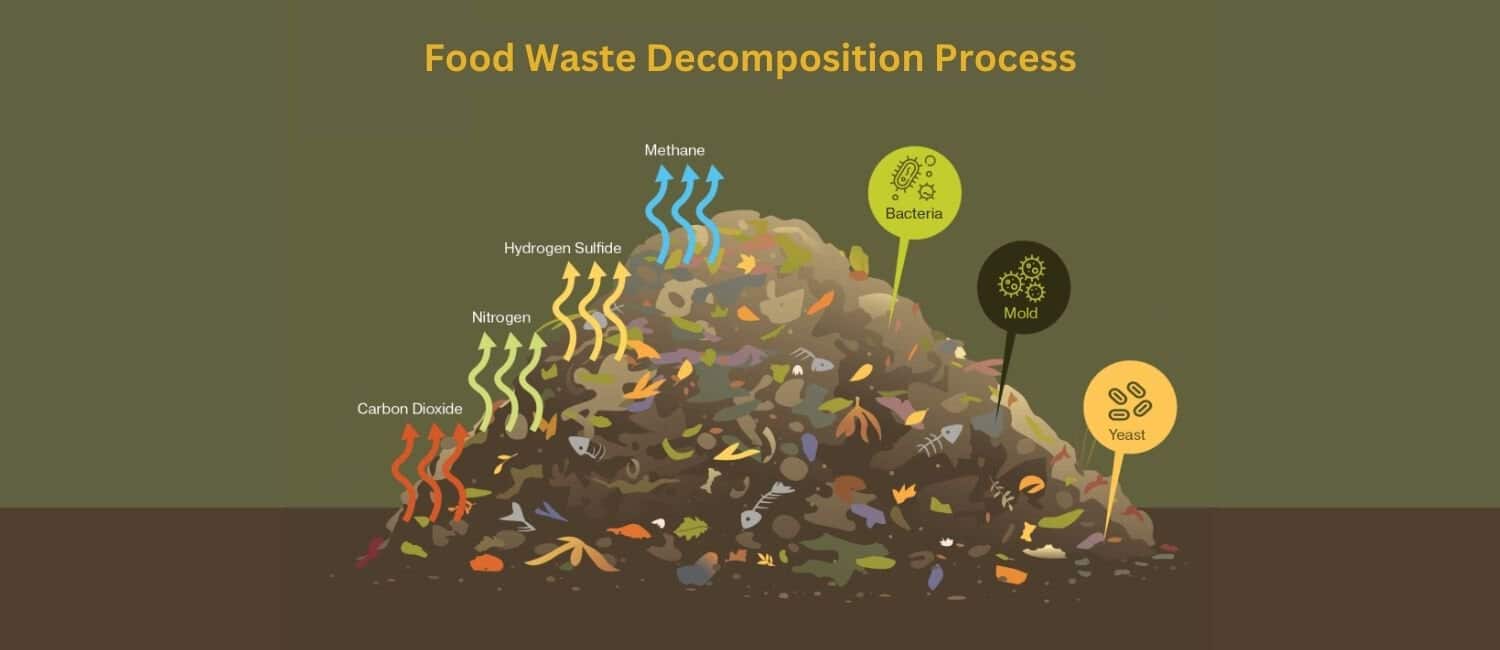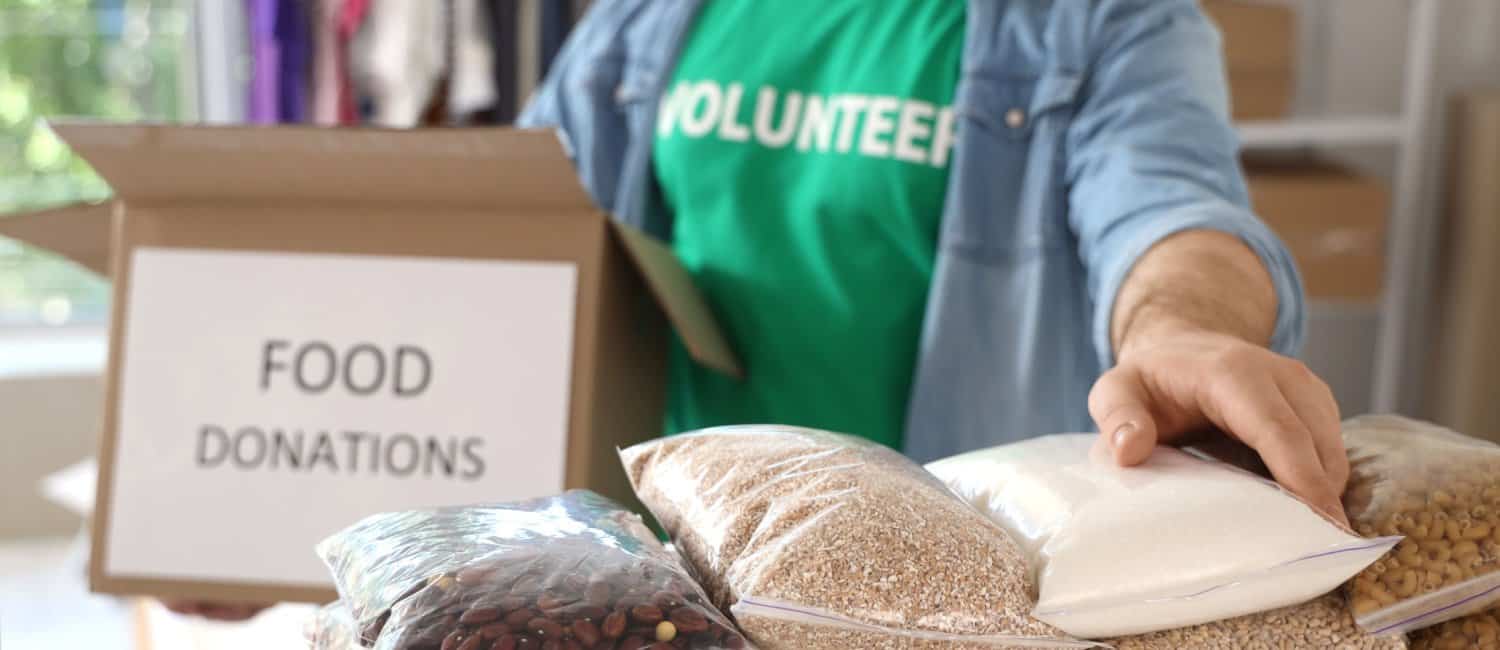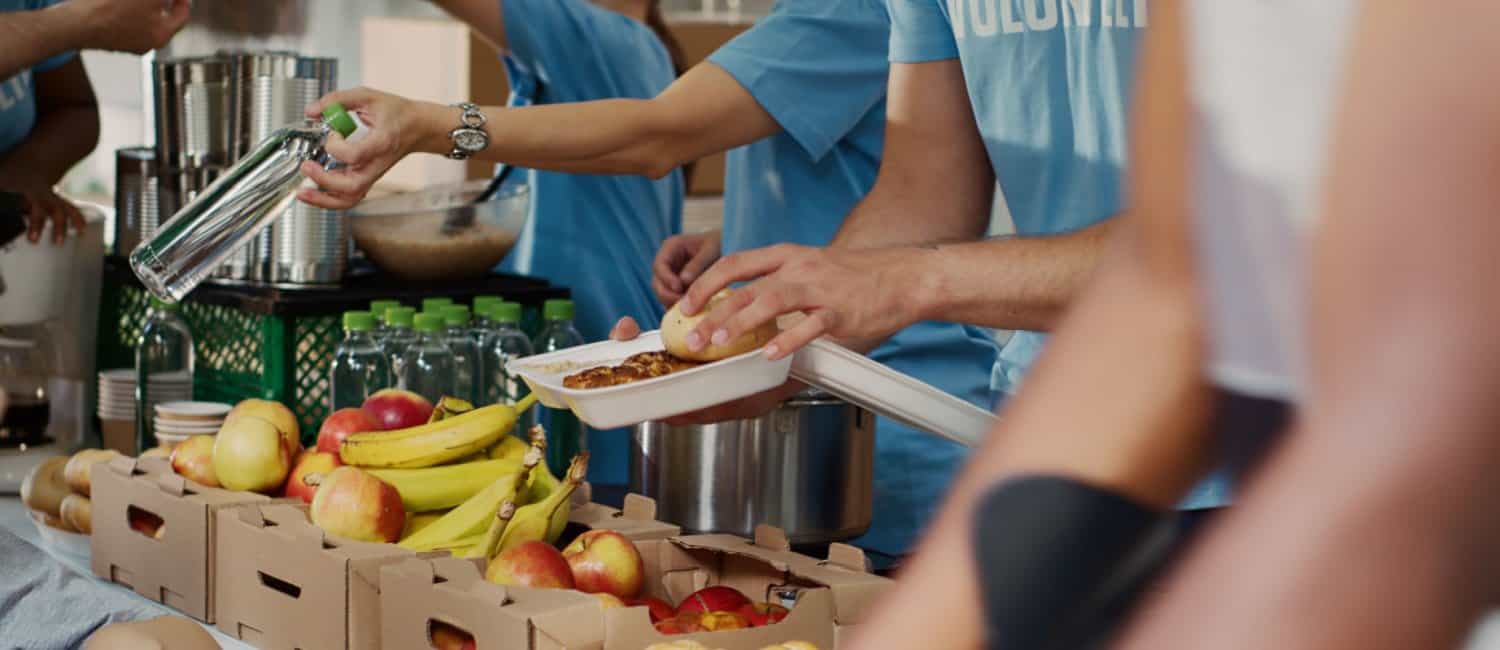Globally, we waste around a third of our food every year—that’s 2.1 million tonnes a day. In the UK, the majority (70%) comes from households, but the other 30% comes from businesses. Sadly, most of the food we throw away is perfectly fine to eat.
The UK also produces the most food waste in Europe. The average Brit bins around 140 meals annually, and our retail sector generates roughly 270,000 tonnes of annual food waste. As a nation, our food waste produces approximately 25 million tonnes of greenhouse gases (GHG) every year.
The world is desperate for change. At Rapid Formations, we’re passionate about sustainability and believe that SMEs have the power to drive meaningful change. As an SME ourselves, we’re here to share our insights and top tips on how small businesses can minimise food waste in and out of the workplace.
Key Takeaways
- Minimising food waste on a commercial level can feel like an enormous task. To make it easier and start by running an audit to identify the biggest problem areas.
- Recycling and repurposing excess food, partnering with a waste collection service, and donating unwanted food to local communities are just some ways small businesses can minimise their food waste.
- For maximum impact, engage and excite employees about reducing food waste in and out of the office.
Run a food waste audit
Start by evaluating how much food waste your company produces. This will help you understand the biggest problem areas and make it easier to implement change.
For example, if you give your employees a free lunch, you could be overordering. Calculate exactly how many people you need to provide for and adjust your order accordingly. Alternatively, consider opting for sharing platters over individual portions, as this can help minimise food waste.
Another problem could be people leaving their leftovers in the fridge for too long, causing food to decay and end up in the bin. If that’s the case, issue a notice advising staff to remove their items from the office before they leave for the day. Encourage them to eat or repurpose leftovers rather than throwing them away.
This waste audit guide can help you get started. Follow the steps to collect, sort, and measure your food waste and analyse your results to determine the specific areas in your business that need attention.
Recycle food waste
When we throw our leftovers in the general waste bin, all that food ends up in landfills, where it can take months – even years – to decompose. Did you know that a simple banana peel can take up to two years to break down? But that’s not the only concern.
Once in a landfill, food waste decomposes anaerobically, releasing methane, a greenhouse gas significantly more potent than carbon dioxide, according to the United Nations Environment Programme. That’s why it’s crucial to reduce our consumption and recycle food waste where possible.
Your recycling measures will depend on your waste carrier, but you should have a dedicated food waste bin in the workplace and a regular collection schedule to recycle food waste.

Many waste management companies use food waste to generate biogas, a sustainable energy source. This process mitigates environmental harm and contributes to renewable energy generation.
Arrange commercial food waste collection
If food recycling isn’t available in your area, consider partnering with a private waste management provider like First Mile or Countrystyle Recycling. They provide all the bags and bins your business needs and will arrange a suitable collection schedule.
Rather than allowing our environment to absorb the harmful gases released during food decomposition, these providers convert all non-recyclable waste into green energy.
Businesses in England are legally obligated to recycle food waste
Recycling commercial food waste is not just good practice but a legal requirement in England. The Environment Act 2021 requires all businesses with 10 employees or more (or those producing over 5kg of food waste per week) to separate their food waste from dry recycling and arrange collection by a licensed waste carrier.
Qualifying businesses also need to separate glass, metal, plastic, paper, and carton products to prevent contamination and ensure appropriate recycling of all materials.
Repurpose food
The chart below shows the food groups we discard the most in the UK, based on research by the Waste and Resource Action Programme (WRAP).
Nearly 30% of our food waste comes from vegetables and salad. The second-biggest culprit is unfinished meals (homemade and pre-prepared), followed by bread and dairy (11% and 10% respectively).
Small businesses can take action to minimise food waste by encouraging their teams to repurpose anything they don’t eat. Much of the food we throw away is perfectly edible, such as cauliflower leaves, which make an excellent addition to soup bases, and broccoli stalks, which are great for roasting or adding to your favourite smoothie. Plenty of fruit and vegetables (like lettuce, pineapple, and herbs) can also be replanted to create fresh produce.
If you’re thinking of throwing potato peels away, why not air fry them and make potato skin crisps? If you didn’t finish a loaf of bread and it’s gone stale, blitz it in a food processor to make breadcrumbs. You can also sprinkle stale bread slices with a little water and toast them.
Some foods don’t even require peeling, yet we do it anyway and throw away the peel, along with the valuable vitamins and nutrients they contain. Carrots, cucumbers, and kiwis are just a few examples.
Leave the skin on your fruit and veg to minimise food waste. Just remember to wash them thoroughly first to remove any pesticides lingering from the production process.
Other food uses
Repurposing food doesn’t have to mean finding another way to eat your leftovers. There are many other ways to use them, such as for household cleaning.
For example, as strange as it may sound, banana peels are great for polishing silverware, and lemon rinds are excellent natural limescale removers. Simply place them in your kettle, fill with water, add some baking soda, and boil to do the trick.
Donate unwanted food
Despite the enormous amount of food we waste every day, millions of people suffer from food poverty and malnutrition. Donating surplus food is a great way to reduce food waste and help those in need.
The easiest way to donate is through local food banks. You can donate cereal, tinned and jarred foods, pasta, rice, and more. If you have any of these items in the office that people aren’t getting through, you can avoid throwing expired products away by donating them to your local community.

It’s also a good idea to ask employees to donate unused food items at home. If you’re unsure where your local food bank is or it’s too far away, most supermarkets have food donation stations, which may be more convenient.
Another way to donate excess food is through dedicated partners and charities. The Felix Project, for example, runs a corporate support programme through which businesses can supply their surplus food to the community on an ongoing basis.
Running a food business? Join a surplus food marketplace
If you run a food business, you likely have food waste, which is harming the environment and your business profits. WRAP estimates that around 12% of the UK’s food waste comes from hospitality, food services, and retail. Combined with household, farm, and manufacturing waste, the UK wastes around £17 billion a year.
Save our planet and your bottom line by putting unsold stock to good use. Too Good to Go, a business-to-consumer (B2C) marketplace for surplus food, is one company on a mission to help businesses minimise food waste.

Local food businesses in the UK and beyond can sign up and sell their excess food stock in surprise bags for a reduced price. Simply sign up, specify which type of food you sell, and set up your surprise bag information. You’ll need to specify what type of items customers can typically expect, how much a surprise bag costs, and when customers can collect their order.
A surprise bag contains anything you have left at the end of the day. As leftovers are difficult to predict, customer won’t know what they’re getting until they collect their surprise bag.
And that’s it. Anything you don’t sell before the use-by date can still end up in good hands, saving 2.7kg of CO2 emissions with every surprise bag. You can also easily track your earnings and receive payment directly through the app, making this a convenient solution for both businesses and customers.
Buy imperfect produce
Another great way to reduce food waste is to buy imperfect produce. Also known as ‘ugly’ or ‘wonky’, these items are considered too unattractive to sell in supermarkets.
For example, it might be an apple that’s the wrong shade of red or a misshapen carrot. Despite their physical flaws, these foods are perfectly edible.

As the food waste reduction movement grows, more entrepreneurs are on a mission to embrace wonky fruit and veg, and you could be one of them. Some have launched businesses to get more imperfect produce into people’s hands (e.g. Oddbox), and even supermarkets (like Lidl and Morrisons) now have their own wonky product lines.
If you operate in the food industry, ask your suppliers for imperfect items or switch to a supplier that offers them. Even if you provide your team with fresh fruit in the office, choose wonky fruit. Look into a regular Oddbox delivery or visit your local supermarket to see if you can pick up a box of imperfect produce.
How to reduce food waste with a change of mindset
We’ve explored practical ways to reduce food waste, but to see long-term results, it’s equally crucial that everyone in the organisation is on board and does their bit. Start with clear and regular communication. Issue internal newsletters, notices, and reminders around the workplace about food waste reduction.
If it’s not already, add sustainability to your company handbook, explaining why it’s essential to the business and how every team member can help towards this good cause. This will also make it easier to onboard new employees and help them understand your company values.
Remember that some people will be more passionate than others about getting involved, so you could issue incentives. For example, set realistic targets (like recycling five food items per week) and reward those who achieve them.

Another vital element is ongoing training. If you have an office or operations manager, they should undergo regular training in commercial recycling and implement necessary measures around the workplace that help reduce food waste.
For instance, clearly label recycling stations or display helpful infographics that help employees understand how to recycle food correctly.
Finally, getting employees physically involved in tackling food waste is a good idea. Consider arranging volunteering days, workshops, and classes to educate them on the importance of reducing food waste, how to repurpose it, and even how to grow their own produce at home.
Benefits of reducing food waste
Proactively reducing food waste can benefit a small business in many ways, especially those in the food and hospitality industries. These include:
- Cost savings – Lower your purchasing and disposal costs by minimising food waste. The less waste your business produces, the less you’ll need to spend on ingredients and waste management.
- Enhanced corporate image – Following sustainable practices like reducing food waste can boost your corporate image, appealing to eco-conscious customers and potentially attracting more customers who value sustainability.
- Regulatory compliance – Proper food waste disposal is now a legal requirement for UK businesses, so it’s crucial to comply with these regulations.
- Community relationships – Donating excess food to local charities and food banks can strengthen community engagement and improve brand loyalty.
- Higher employee morale – Involving staff in your sustainability initiatives can promote a sense of purpose and teamwork. Employees also often feel motivated when working for an ethical business.
Rapid Formations’ Associate Director, Keziah Cowan, explains why it’s crucial that small businesses take proactive steps towards reducing food waste:
Reducing food waste is a core part of any business’s sustainability strategy. Not only does it help maximise resources and cut unnecessary costs, but it also demonstrates a commitment to environmental responsibility. With UK businesses generating 3.6 million tonnes of food waste annually, SMEs are in a powerful position to lead the way for change, setting an example that can inspire broader industry shifts towards a more sustainable future.
Start reducing food waste now
The world is facing a food waste crisis. By throwing too much food away, our money is going to waste, our planet is suffering, and millions are living in poverty. But small businesses can make a considerable difference in numerous ways, from recycling leftovers to making more conscious shopping choices.
Thanks for reading. We hope you found this article insightful and feel empowered to reduce food waste in your business. If you have any questions, please leave them in the comments below.
If you’d like more tips and advice on implementing sustainable practices in your organisation, take a look at the Rapid Formations blog.
Please note that the information provided in this article is for general informational purposes only and does not constitute legal, tax, or professional advice. While our aim is that the content is accurate and up to date, it should not be relied upon as a substitute for tailored advice from qualified professionals. We strongly recommend that you seek independent legal and tax advice specific to your circumstances before acting on any information contained in this article. We accept no responsibility or liability for any loss or damage that may result from your reliance on the information provided in this article. Use of the information contained in this article is entirely at your own risk.










Join The Discussion
Comments (2)
Excellent article! These food wastage reduction tips will be helpful for my own tax planning UK business.
Thank you for your comment, David. We’re happy you have found these food wastage reduction tips useful.
Kind regards,
The Rapid Formations Team